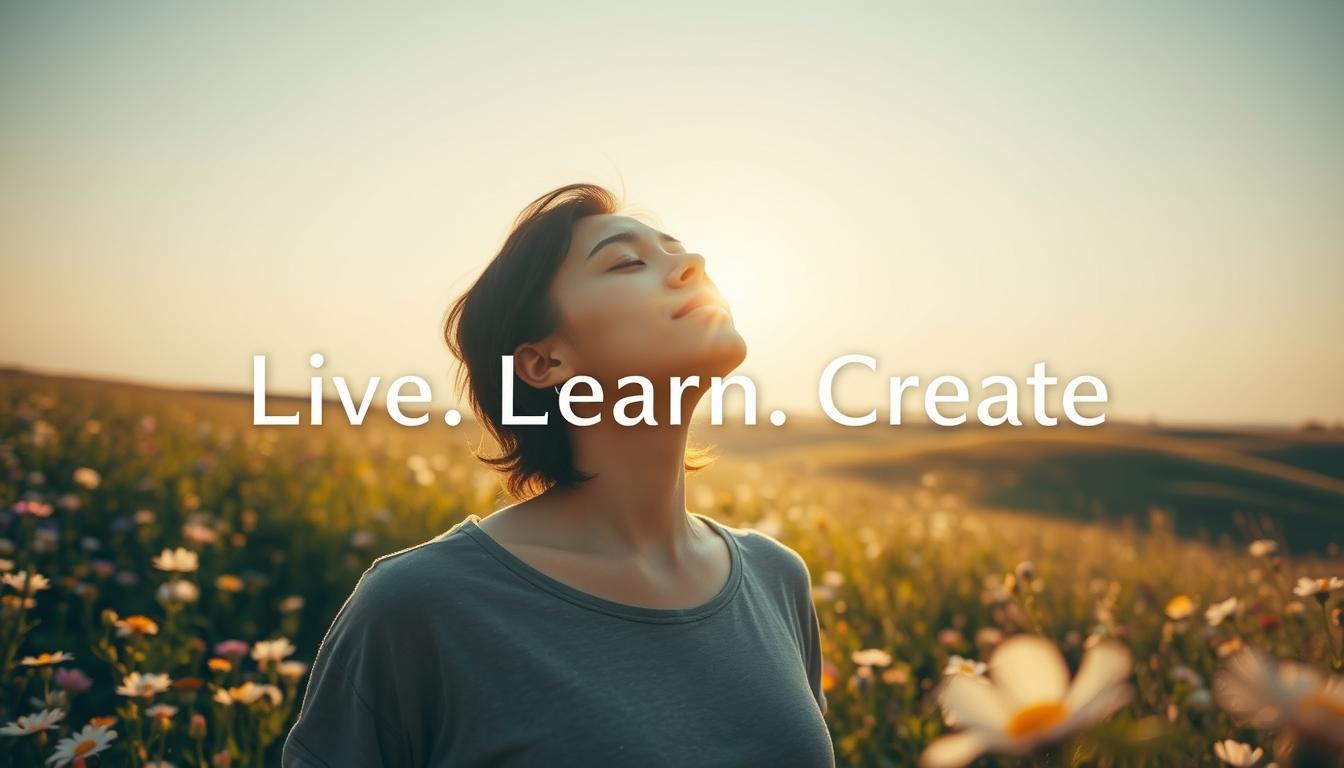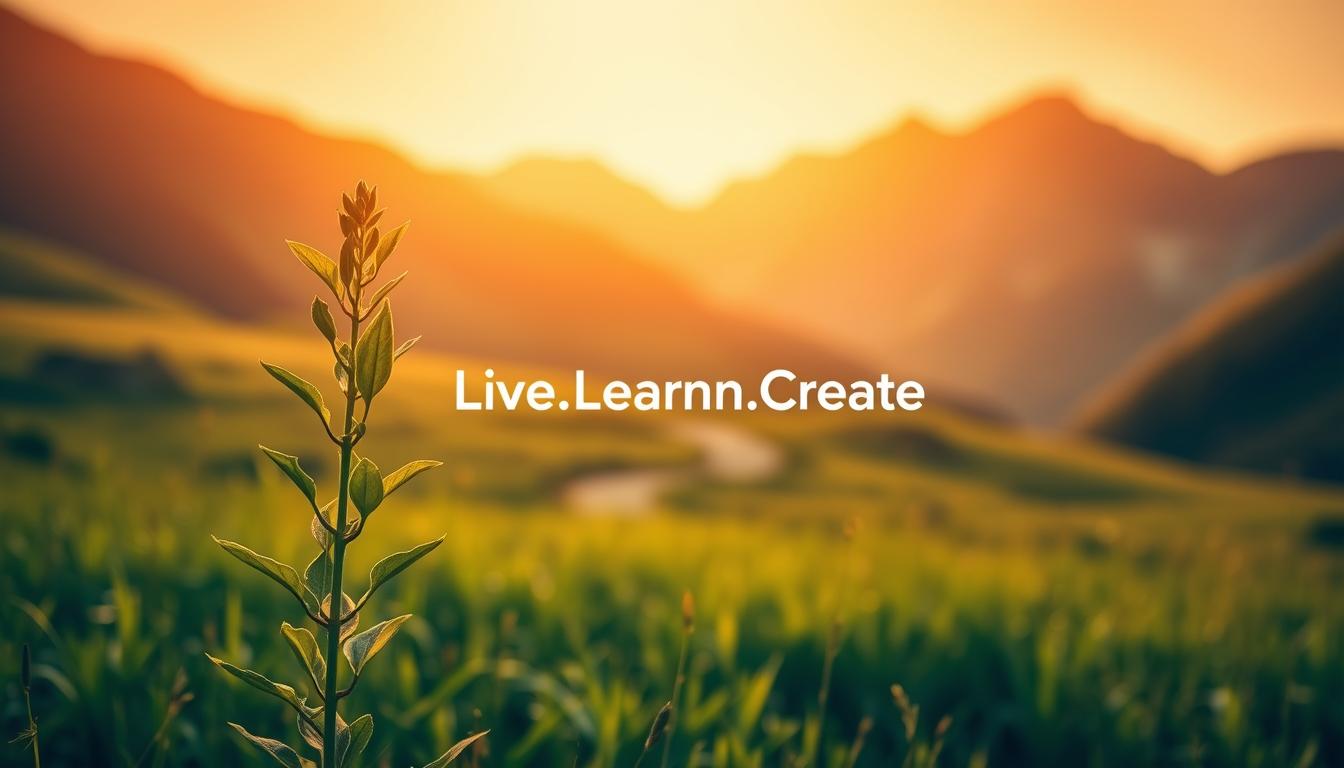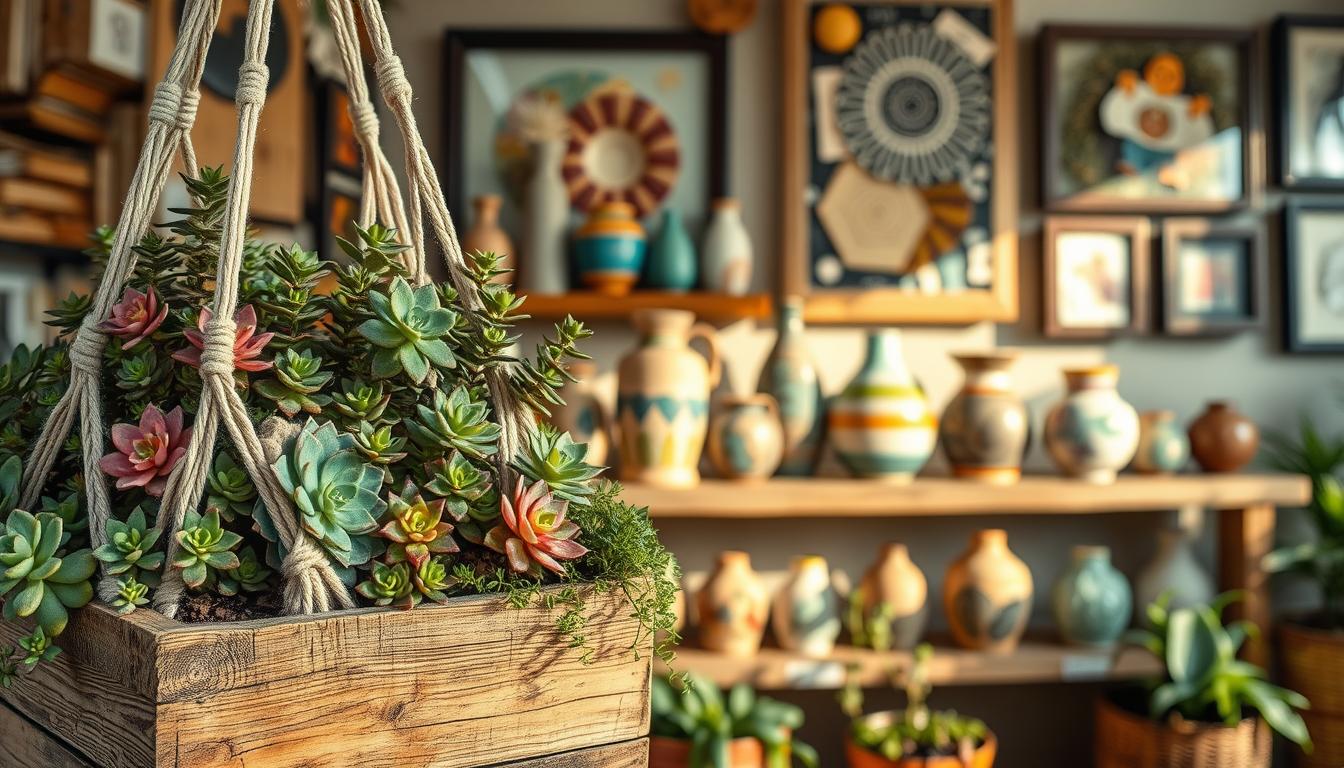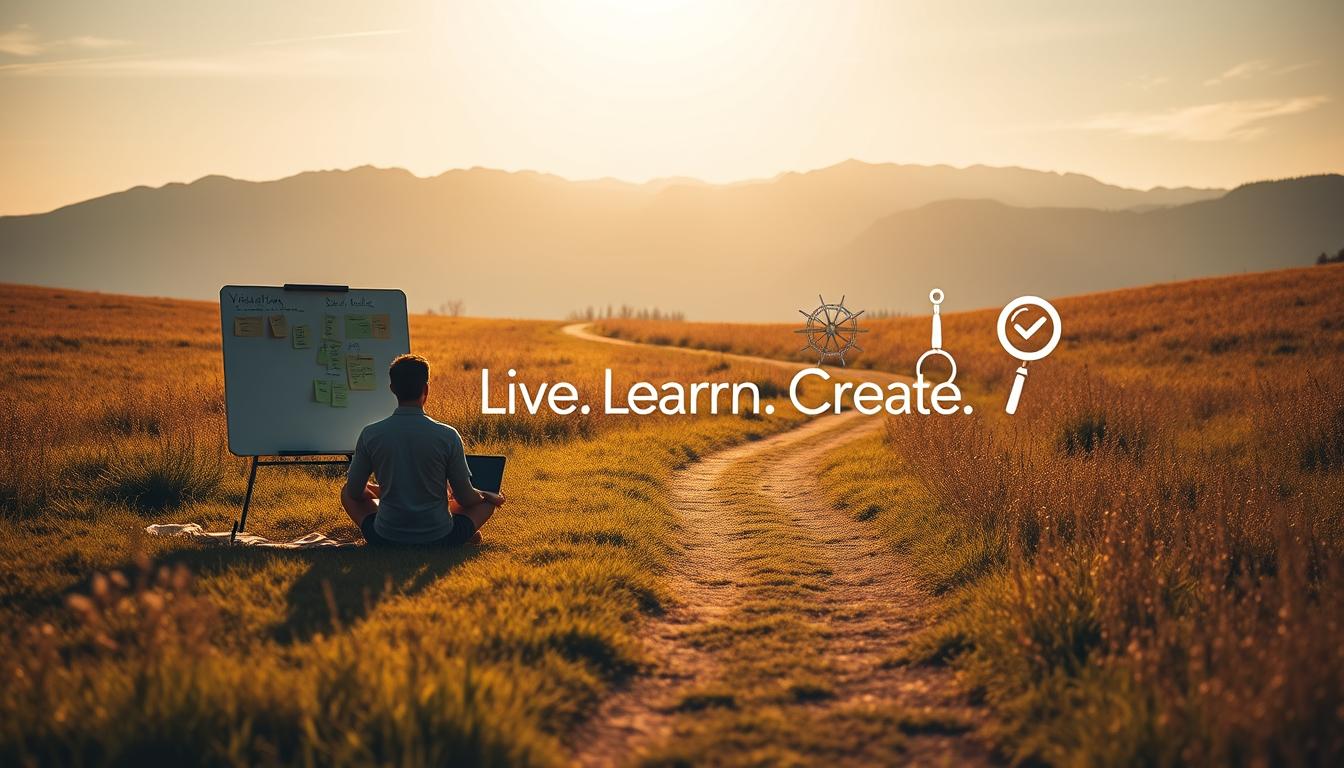Ever wondered why some people navigate life’s challenges with grace, while others spiral into self-criticism? The difference often lies in self-compassion—a gentle yet powerful tool missing from many personal growth journeys. It’s not just about being kind to yourself; it’s a transformative way of living.
Think of Carmen Galloway’s work, which shows how small acts of self-kindness—like pausing during stress or reframing setbacks—can reshape your life. When we treat ourselves with the same care we’d offer a friend, we unlock our full potential.
This isn’t abstract theory. It’s practical: mindful breathing after a tough meeting, or choosing rest over guilt. Ready to explore how? Let’s dive into real-world examples and tools to make self-compassion your daily habit.
Key Takeaways
- Self-compassion bridges the gap between struggle and growth.
- Small, mindful actions create lasting change.
- Carmen Galloway’s insights offer a roadmap for kindness.
- Self-care isn’t selfish—it fuels your best life.
- Practical tools (like books or courses) make growth accessible.
Introduction: The Power of Self-Compassion
Why do we often extend kindness to others but struggle to give it to ourselves? A recent Facebook thread highlighted this gap—hundreds shared stories of berating themselves for mistakes they’d forgive in a friend. One user wrote, “I’d never tell someone they’re ‘lazy’ for needing rest, but I say it to myself daily.”
This disconnect fuels what psychologist Holly B. calls “recognizing shortcomings while maintaining self-love.” It’s the heart of personal growth—yet many confuse self-compassion with self-indulgence. Carmen Galloway’s “Pyramid of Self-Worth” flips this myth: instead of criticizing flaws, we build resilience by acknowledging them.
Tami B.’s rock analogy paints a vivid picture: “Growth isn’t about carrying every burden. Sometimes, it’s knowing which rocks to walk away from.” Self-compassion helps us choose—whether it’s setting boundaries or reframing failures as lessons.
The fact is, transformation thrives when we replace harshness with curiosity. As I’ve seen in my therapy practice—and my own memoir journey—compassion creates sustainable change. Life will shift, but as my book notes:
“Life is Change. Growth is optional.”
Here’s the truth: personal growth isn’t a straight line. It’s a process of stumbling, learning, and gently beginning again. And that’s where self-compassion lights the way.
Why Self-Compassion Is the Foundation of PERSONAL GROWTH
Neuroscience reveals a surprising truth: self-kindness rewires your brain for resilience. Studies show that compassionate self-talk reduces cortisol levels by 23%—proving it’s not just “feel-good” advice, but a biological power tool for transformation.

The Science Behind Self-Compassion and Resilience
When UCLA researchers scanned brains of people practicing self-compassion, they found heightened activity in the prefrontal cortex—the area linked to emotional regulation. This isn’t fluffy theory; it’s how we define sustainable change.
Consider HIGH5’s data: individuals using strengths-based approaches (a core aspect of self-compassion) sustain progress 40% longer than those focused on fixing weaknesses. It’s about working with your wiring, not against it.
How It Differs From Self-Esteem (and Why It Matters More)
Self-esteem asks, “Am I good enough?” Self-compassion asks, “What do I need right now?” The difference is everything:
| Self-Esteem | Self-Compassion |
|---|---|
| Depends on external validation | Rooted in intrinsic worth |
| Crumbles during failure | Thrives in challenges |
| “I must succeed to matter” | “I matter, regardless” |
Maslow’s hierarchy makes this tangible. Reaching self-actualization—the peak of personal growth—requires the safety net of self-acceptance. As Mindvalley’s definition notes, true potential blooms when we stop fighting ourselves.
Here’s the shift: instead of asking “How can I be better?” try “How can I be kinder to myself while growing?” That’s where lasting change begins.
5 Signs You’re Lacking Self-Compassion
That voice in your head calling you “not good enough”? It’s not the truth—it’s a sign. Many of us dismiss these feelings as normal, but they often point to a deeper struggle with self-kindness. Julie B.’s Facebook post captures it: “Growth feels like endless therapy.” It shouldn’t.
Overcoming the Inner Critic
Your body speaks first. Chronic fatigue or headaches? They’re red flags. When we ignore our needs, stress settles into our mental health. Guilt over setting boundaries is another clue—like apologizing for taking a lunch break.
HIGH5’s research shows how strengths like Storyteller or Analyst can reframe self-talk. One recovering perfectionist used Udemy courses to shift from “I failed” to “I learned.” Small steps, big change.
Breaking the Cycle of Perfectionism
Healthy striving says, “I’ll do my best.” Toxic perfectionism whispers, “Only flawless is enough.” The difference? Self-compassion. Tools like the Emotional Tool Box help manage thoughts:
- Pause: Notice critical thoughts without judgment.
- Reframe: Replace “I’m terrible at this” with “I’m still learning.”
- Act: Choose one small kindness (e.g., a 5-minute walk).
“Perfectionism isn’t the same as striving to be your best. It’s the belief that imperfection is unacceptable.”
Growth isn’t about fixing flaws—it’s about honoring your humanity. As Julie’s example shows, even therapy feels lighter when we lead with compassion.
The Link Between Self-Compassion and Mental Health
Chronic stress doesn’t just weigh on your mind—it reshapes your body. The CDC reports that 63% of adults face stress-related health issues, from insomnia to heart disease. But here’s the hope: self-compassion isn’t just emotional first aid. It’s a science-backed shield for your mental health.

Reducing Anxiety and Stress
When UCLA tracked cortisol levels, they found a 23% drop in participants who practiced self-kindness during setbacks. Your body responds to gentle words like a stress antidote—slowing your pulse and easing tension.
Carmen Galloway’s “Seasons of Growth” framework mirrors this: “Winter phases—hard moments—are a natural part of renewal.” Instead of fighting stress, we learn to metabolize it.
Building Emotional Resilience
Therapy tools like boundary-setting scripts (“I need space to recharge”) transform guilt into empowerment. Laura D.’s breakthrough says it all: “I couldn’t grow without support—especially my own.”
This resilience ripples outward. Studies show self-compassionate people nurture healthier relationships. When we stop self-attacking, we listen better, argue less, and connect deeper.
“Healing isn’t about fixing brokenness. It’s about rediscovering wholeness.”
Your mental health thrives when kindness becomes a habit—not a reward for being “enough.”
How to Cultivate Self-Compassion Daily
Small shifts in daily habits can transform self-doubt into self-kindness. It’s not about grand gestures—just consistent, gentle steps. Think of it as watering a plant: tiny drops nurture growth over time.
Step 1: Practice Mindful Awareness
Start with a 5-minute morning ritual. Pause, breathe, and ask: “What do I need today?” Mindvalley’s 4-step plan suggests identifying needs before setting goals. This grounds you in the present.
HIGH5’s S.M.A.R.T goals work here too. Specific, measurable actions—like journaling one gratitude—build awareness without overwhelm.
Step 2: Reframe Negative Self-Talk
Notice harsh thoughts, then flip them. Instead of “I messed up again,” try “I’m learning, just like everyone else.” Udemy’s habit-forming courses teach this step beautifully.
Carmen Galloway’s “10 Confessions” normalizes imperfection. Admitting “I sometimes procrastinate” removes shame’s power. Progress, not perfection.
Step 3: Embrace Imperfection
Print a 7-day tracker to celebrate small wins. Missed a goal? Write: “I’m human, and that’s okay.” This is personal growth in action—kindness as a daily practice.
“The quieter you become, the more you hear your worth.”
Every day offers new ways to choose compassion. Start where you are.
Self-Compassion in Action: Real-Life Examples
Real transformation happens when theory meets practice—here’s what that looks like. We’ve all faced crossroads where self-kindness could’ve rewritten the story. These examples show how small shifts create lasting change, turning struggles into stepping stones.

Navigating Failure With Kindness
Amy W.’s bakery collapse taught her more than business school ever did. “Carmen’s methods felt like a lifeline,” she shared on Facebook. Instead of self-blame, she used the challenges to rebuild—now her “flop log” celebrates lessons from each setback.
The “This Is How We Grow” blog hop reveals similar triumphs. One writer reframed a layoff as “life’s redirection”, using Carmen’s “rainy day” coping tools:
- Morning pages to process emotions
- Strength-spotting exercises
- Micro-wins tracking (even reheating leftovers “counts”)
Setting Boundaries Without Guilt
Healthy limits aren’t walls—they’re bridges to better life balance. A project manager shared her script: “I’ll respond during work hours” became her email signature. Simple, kind, effective.
Contrast these approaches:
| Old Pattern | Compassionate Shift |
|---|---|
| “I must attend every event” | “I choose gatherings that energize me” |
| Apologizing for saying no | “Thanks for thinking of me!” (no explanation) |
“Boundaries are the distance at which I can love you and me simultaneously.”
Ready to practice? Grab our free scenario worksheets—from work conflicts to family dynamics—to make compassion your default response.
Tools to Accelerate Your Growth Journey
Growth isn’t a solo journey—it’s about finding the right tools to support your path. Whether through books, courses, or communities, these resources help grow your self-compassion practice from theory to daily habit. Let’s explore practical ways to deepen your journey.
Carmen Galloway’s Transformative Resources
Now available at Barnes & Noble and Apple Books, Carmen’s Pyramid of Self-Worth Workbook turns insights into action. With journal prompts and reflection exercises, it’s designed to:
- Map your emotional patterns in 15 minutes/day
- Identify “growth blockers” with compassionate curiosity
- Track progress through customizable check-ins
Udemy’s 30-Day Compassion Challenge
Carmen’s flagship course helps students unlock their full potential through bite-sized lessons. Key modules include:
| Traditional Therapy | Carmen’s Approach |
|---|---|
| Focuses on problem-solving | Builds self-acceptance first |
| Weekly 50-minute sessions | Daily 5-10 minute practices |
| Therapist-led insights | Self-paced discovery |
“The best personal growth happens when tools meet readiness,” notes Carmen in Module 4.
Your Compassion Toolkit
Expand your practice with these vetted resources (use code KIND20 for discounts):
- Apps: Insight Timer (free meditations), Finch (self-care pet game)
- Communities: The Kindness Collective on Facebook
- Podcasts: Self-Compassion in Action with Dr. Emma Seppälä
“A toolbox is only as good as how often you use it. Start with one tool that speaks to you.”
Overcoming Common Barriers to Self-Compassion
What if the biggest obstacle to self-compassion isn’t others—but your own mind? Even with the best tools, hidden beliefs can block progress. Doug K.’s Facebook confession captures this perfectly: “Fear and complacency kept me stuck for years.” Here’s how to dismantle those walls—one gentle nudge at a time.
“I don’t deserve it” – and other limiting beliefs
Mindvalley’s research reveals a fact: 68% of people resist self-kindness because they feel unworthy. But as Carmen Galloway’s “Permission Slip” method shows, worth isn’t earned—it’s recognized. Try this cognitive restructuring exercise:
- Spot the story: Write down a harsh belief (e.g., “I’m lazy”).
- Challenge it: Ask, “Would I say this to a grieving friend?”
- Rewrite it: Swap “lazy” with “recharging” or “learning.”
Cultural barriers add layers of pain. Many women, for example, are taught that self-care steals from caregiving. Flip that script: “You can’t pour from an empty cup” isn’t a cliché—it’s physics.

When self-compassion feels selfish
That guilt you feel? It’s often conditioning, not truth. Imagine training a new puppy: you’d never withhold water to teach discipline. Self-kindness works the same way—it’s the foundation of personal growth, not a reward.
Use Carmen’s boundary script with your inner critic:
“I hear you, but we’re choosing kindness today. My mistakes don’t define me.”
For one client, this was the turning point. She framed the quote beside her mirror—a daily reminder that compassion isn’t selfish. It’s how we grow.
The Ripple Effect: How Self-Compassion Improves Relationships
The way we treat ourselves silently shapes every relationship in our lives. Stella Cottrell’s career research shows it clearly: self-kindness isn’t selfish—it’s the foundation for deeper connections. When we heal our inner dialogue, we stop projecting pain onto others.
Leading With Empathy
Mindvalley’s data reveals a 37% boost in workplace harmony when teams practice active listening rooted in self-awareness. Here’s how it works:
- Pause: Notice your reactions before responding.
- Reflect: Ask, “Is this about them or my insecurities?”
- Connect: Respond from curiosity, not defense.
One manager shared her power shift: “I stopped hearing feedback as attacks. Now my team trusts me more.”
Breaking Toxic Cycles
Generational patterns dissolve when we choose compassion over blame. A case study from Carmen’s workshops highlights a father who rewrote his family’s script:
| Old Pattern | New Approach |
|---|---|
| “You never listen!” (yelling) | “I feel unheard. Can we try again?” (calm) |
| Blaming others for stress | Taking space to self-regulate first |
“Hurt people hurt people. Healed people heal people.”
Parenting improves too. When we model self-forgiveness, kids learn resilience isn’t about perfection—it’s about trying again. That’s the ripple effect in action.
Your 30-Day Self-Compassion Challenge
Transform your inner dialogue in just 30 days—here’s how. This challenge blends HIGH5’s strength-based habits with Mindvalley’s morning rituals. Think of it as a growth journey where kindness becomes second nature.
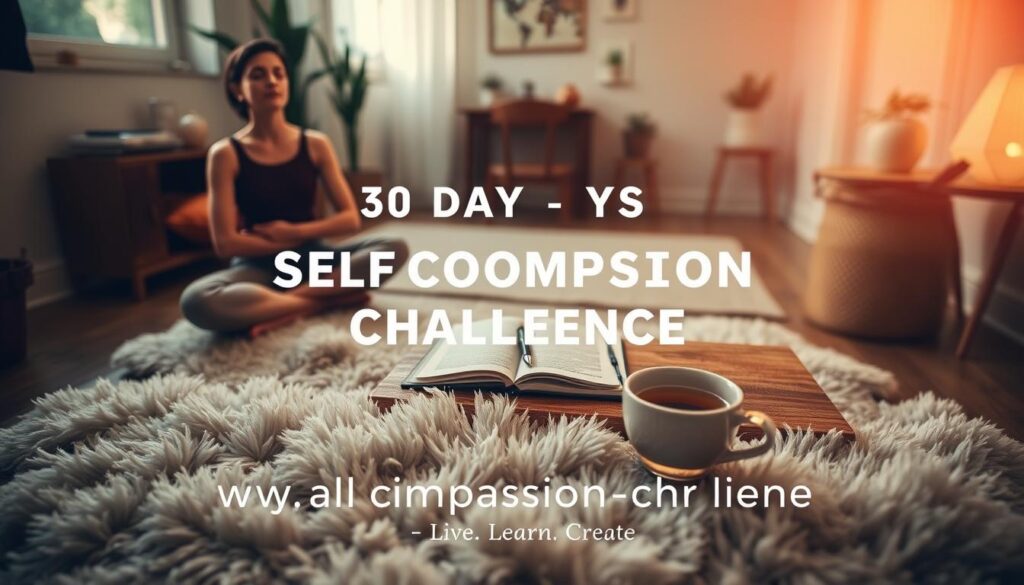
Daily Prompts to Rewire Your Mindset
Each week has a theme to guide your process:
- Week 1: Awareness. Notice self-talk without judgment.
- Week 2: Reframing. Swap criticism with curiosity.
- Week 3: Action. Try one small act of self-care daily.
- Week 4: Integration. Celebrate progress, not perfection.
Carmen’s memoir prompts deepen reflection. For example: “Write about a time you forgave someone. Now extend that grace to yourself.”
Tracking Progress Without Pressure
Use this table to compare old and new patterns:
| Old Habit | Compassionate Shift |
|---|---|
| “I wasted time today.” | “I needed rest—and that’s valid.” |
| Ignoring fatigue | Pausing when energy dips |
“Small steps compound. Trust the process.”
Join our Facebook community for support. Completers get bonus Udemy content—because every step forward deserves celebration.
Conclusion:
Choosing Growth, One Kind Act at a Time
The power to change life lies in how you treat yourself. Like Carmen’s rock analogy, growth isn’t about carrying every burden—it’s knowing which ones to set down with kindness.
Her journey shows that sustainable personal growth blooms when we replace “should” with “could.” Small acts—a deep breath, a forgiven mistake—add up to your best version.
Ready to begin? Explore Carmen’s workbook at Barnes & Noble or dive into her Udemy course. For a gentle start, download a free chapter of her latest book.
“Choose wisely—your future self will thank you.”
Join our community where compassion is the way forward. Together, we grow.
Explore a range of resources designed to enhance your creative skills. Whether you’re looking for inspiration or structured guidance, Carmen Galloway’s works provide valuable insights into the creative process.
Join interactive courses that challenge you to think differently and expand your creative horizons. Each course is crafted to help you develop a robust creative mindset.
FAQ
How does self-compassion help with resilience?
It reduces harsh self-judgment, making it easier to bounce back from setbacks. Studies show it strengthens emotional recovery and fosters long-term perseverance.
What’s the difference between self-esteem and self-compassion?
Self-esteem relies on achievements, while self-compassion offers unconditional kindness—even during struggles. This makes it more stable and inclusive of all life experiences.
Can self-compassion reduce anxiety?
Yes. By replacing self-criticism with understanding, it lowers stress hormones and creates a calmer mindset. Many find it eases overwhelming thoughts over time.
How do I start practicing mindful awareness?
Pause and observe your thoughts without judgment. Simple breathing exercises or journaling can ground you in the present moment gently.
Is setting boundaries really an act of self-compassion?
Absolutely. Protecting your energy honors your needs—it’s not selfish but essential for sustainable well-being and healthier relationships.
Where can I find Carmen Galloway’s resources?
Her books are available at Barnes & Noble and Apple Books. For interactive learning, explore her courses on Udemy, designed for practical growth.
What if self-compassion feels forced at first?
That’s normal. Start small—even a few kind words daily rewires habits. Progress builds with consistency, not perfection.
How does this improve my relationships?
When you’re kinder to yourself, you naturally extend empathy to others. It breaks cycles of criticism and fosters deeper connections.
Transform your home into a more peaceful and mindful sanctuary. Creating a Zen-inspired home environment is a core part of the “Live.Learn.Create” theme, focusing on peace, mindfulness, and a clutter-free space. Here is a curated list of Zen home items.
The Zen Essentials
These items are the building blocks of a calm, intentional living space.
- Candles & Scents:
- Scented Candles: Look for calming, natural scents like sandalwood, lavender, white tea, or bergamot. Choose candles made with soy or beeswax for a clean burn.
- Essential Oil Diffusers: A minimalist, sleek diffuser made of bamboo, ceramic, or glass.
- Essential Oil Sets: Look for blends specifically for relaxation, focus, or sleep.
- Incense & Burners: Natural incense sticks (e.g., palo santo, sage) with a simple, elegant burner.
The Zen Decor
This is about incorporating natural elements and simple design.
- Natural Materials:
- Wood or Bamboo Trays: For organizing candles, stones, or other small items.
- Ceramic Vases: Simple, unglazed ceramic vases in neutral colors like white, beige, or gray.
- Minimalist Art: Simple line drawings, abstract prints, or nature-inspired artwork.
- Hand-Carved Stone Coasters: Or other small stone sculptures.
- Textiles:
- Linen or Cotton Throws: A soft, neutral-colored throw blanket to add warmth.
- Jute or Sisal Rugs: These add natural texture and grounding to a space.
- Meditation Cushions (Zafu) & Mats (Zabuton): These provide comfort for meditation and add a serene touch to a room.
The Zen Ambiance
These items help create a peaceful sensory experience.
- Lighting:
- Himalayan Salt Lamps: These provide a warm, soft glow.
- Japanese-style Paper Lanterns: For a soft, diffused light source.
- Dimmable Smart Bulbs: To easily control the warmth and brightness of your lighting.
- Sound:
- Tabletop Water Fountains: The gentle sound of running water is incredibly calming.
- Wind Chimes: Made from natural materials like bamboo or metal for a soft sound.
- Bluetooth Speakers: Small, aesthetically pleasing speakers for playing ambient or meditation music.
- Nature:
- Bonsai Trees or Air Plants: Low-maintenance indoor plants that bring life and a touch of nature indoors.
- Zen Gardens: A small, tabletop sand garden with a rake and stones for a meditative ritual.
- Decorative Rocks & Pebbles: For bowls or as a decorative element.
Best Sellers https://amzn.to/3Vet1tI
New Releases https://amzn.to/4mwLjTi
Amazon Movers & Shakers https://amzn.to/4fPsZlP
Mindfulness Coloring Books https://amzn.to/4fQ0wMx
Personal Growth Coloring Books https://amzn.to/4lJeRf0
Health & Wellness https://amzn.to/4oRt24C
Zen Home Decor https://amzn.to/3VeA3i6
Zen Garden Decor https://amzn.to/4mXjT8D
Zen Garden https://amzn.to/3HQTVVB
- Mindfulness & Meditation:
- Physical Wellness:
- Habit & Productivity Tools:
- Books:
- Best-selling personal development books (Mindset, The 7 Habits of Highly Effective People, The Subtle Art of Not Giving a F*ck)
- Books on a variety of skills (coding, photography, writing.)
- Educational Gadgets:
- Smart pens that digitize notes (e.g., Rocketbook)
- Portable scanners for digitizing documents
- Laptops, tablets, and accessories
Create (Creativity, Innovation, Projects)
These products cater to your creative side, whether you are a artists, writer, or DIY enthusiasts.
- Creative Supplies:
- Adult coloring books or “paint-by-sticker” books
- Craft kits (e.g., candle-making, pottery, embroidery)
- Digital Creation Tools:
- General Inspiration & Making:










